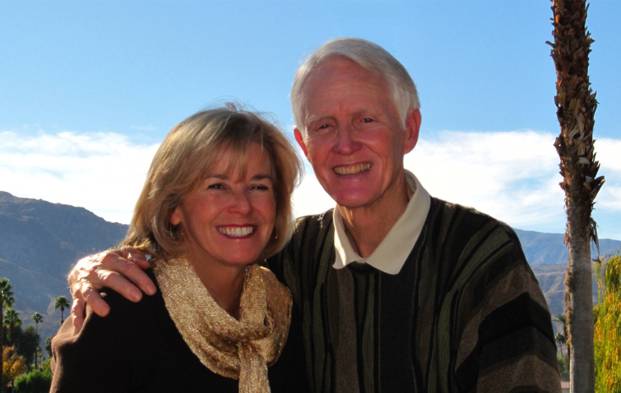
Loneliness
Methods of coping with loneliness, fears of rejection, and shyness
Tom G. Stevens PhDPsychologist/Professor Emeritus, California State University, Long Beach
Send Feedback/Questions to: Tom.Stevens@csulb.edu
You Can Choose To Be Happy:
Site dedicated to enhancing human happiness, self-development, and success
Go to: Choose To Be Happy Checklist
SITE MAP: All free Self-help resources includes online book, You Can Choose To Be Happy, and SHAQ

|
|||
| search engine by freefind |
Coping with Feelings of Loneliness,
Fears of Rejection, and Shyness
Tom
G. Stevens PhD
Index
InformationInformation/Advice
Other Internet LinksBooks-Media (not updated)
INFORMATION
Loneliness could be described
more accurately as "being sad or depressed about being alone." Many
people are happy being alone, and many people who feel lonely on Saturday night
staying at home watching TV feel fine on Tuesday doing the same thing. So loneliness
is not the inevitable result of being alone. Instead it is your beliefs and
thoughts about being alone that make you feel lonely when you are alone.
Some people are with other people most of the time and feel lonely the small amount of time that they are not. These people may have become too dependent upon other people for their happiness, and not know how to entertain themselves or take care of themselves adequately. The best solution to that problem is to learn how to entertain yourself and take care of yourself better in any area where you feel dependent. That may take time and a concerted effort. Examine your underlying beliefs about being alone or about needing others to make you happy. Question those beliefs and start acting to find happiness without their help. Counseling can help.
Other people are alone a lot of the time and may know how to take care of themselves very well. Yet they are alone so much that they too feel lonely. Most of these people just want one or a few close relationships. Most want to find someone to be happily married to. Some of these people have had little successful experience in relationships and feel very inadequate in that life area (even though they may be quite successful in other life areas). Some of these people have unrealistic ideas and/or expectations about the opposite sex, partly due to their lack of experience. Some may have encountered a lot of rejection (often due to their own unskilled attempts at starting relationships). Their resulting hurt feelings may cause them to set up barriers to closeness and openness. The feelings of hurt and rejection may even cause them to become hostile toward other people (which further hinders attempts at establishing relationships).
The best thing to do might be to explore your problem of loneliness and try to figure out what underlying assumptions are leading you to feel that way. How is that different than the way someone who enjoyed being alone and could make themselves happy think and act? Commit yourself to finding out more about your loneliness, its causes, and what can be done to solve it on a long-term basis.
Everyone with the fear of being alone needs to accept the possibility that they may at some point be alone the rest of their lives and be at peace with that thought. Otherwise the fear of being alone will haunt them, cause them to feel very dependent ("needy") upon others, cling to others, be easily hurt by others, or even become hostile toward others.
Also, if you haven't been successful approaching the kind of people you want to be with, then you need to examine yourself honestly and get honest feedback about what the causes are. Often people assume that it is more superficial aspects like their appearance, their income, etc. when the real problem is either negativity, lack of social skills, lack of genuine common interests or backgrounds, or other behavioral factors that may cause people to not want to get involved in a relationship. Take the SHAQ assessment on this website for feedback, ask others, follow our internet links on communication and relationship skills or other factors that may affect your behavior toward others, and find a professional counselor that helps you.
The short term way to reduce lonely feelings is to find something mentally involving and constructive to do. (That is a good way to get immediate relief from any negative emotion.) It can be almost anything (e.g. watching TV, reading, doing a chore, etc.). Doing something that is physically exerting can also help the apathetic, depression aspect by energizing your body as well as your mind (e.g. sports, chores, a walk, bike ride, etc.). Of course contacting another person or doing something to help some or compliment them are also good ways to get immediate relief. Try the internet--see our links for making contact with others.
=> Beyond Fear of Rejection
and Loneliness to Self-Confidence
Guide
for overcoming fears of rejection and loneliness, also focuses upon finding people
who are right for you in a relationship. Dr. Tom Stevens
http://home.csulb.edu/~tstevens/c-rejct.htm
=> Choose To Be Happy In Relationships
A set of general guidelines connected to other
links for specific step-by-step help for improving relationships of all types--especially
close or romantic ones. Dr. Tom Stevens
http://home.csulb.edu/~tstevens/chaprels.htm
=> Improving Intimacy and
Conversational Skills for Dating, Meeting, People, and Relationships,
Dr. Tom Stevens
http://home.csulb.edu/~tstevens/convesational_skills.htm
=>
Assertion Training
A program to help you become more
assertive, diplomatic, and effective with other people stressing the
development of "win-win" relationships. Dr. Tom Stevens
http://home.csulb.edu/~tstevens/assertion_training.htm
=>
The Transition from External to Internal Control of Your Life
Has specific
information about how to change underlying beliefs and change habits that can help
you become more internally controlled. Chapter 6 of
Dr. Tom Stevens' Book, You Can Choose To Be Happy. Helps deal with underlying causes
of shyness, lack of assertiveness, and loneliness for many people.
http://home.csulb.edu/~tstevens/h6intern.htm
=> Develop Your Self-Worth and
Self-Confidence
Improving your self-esteem can contribute to becoming more outgoing and confident with people.
Dr. Tom Stevens
http://home.csulb.edu/~tstevens/h5self.htm
=> Take the Success and
Happiness Attributes Questionnaire (SHAQ) to assess your
strengths and suggest ways of improving your ability to overcome
shyness.
http://home.csulb.edu/~tstevens/success
OTHER INTERNET
LINKS
Realing
with Loneliness, Rejection, etc.
****The Shyness Institute Website. Lynne Henderson,
Ph.D.
Clinical Coordinator: Jan Fisher, Ph.D.
Consultant: Philip Zimbardo,
Ph.D. Author of bestselling book about shyness and Stanford psychologist.
http://www.shyness.com/
***Virtual Pamphlet Collection of the University of Chicago--SEE
ASSERTIVENESS, DEPRESSION, RELATIONSHIPS categories
Free online pamphlets about
relationships and many other topics written by psychologists and other counselors
from University Counseling Centers across U.S.A.
http://counseling.uchicago.edu/vpc
***American Psychology Association Free online
search for self-help topics.
Good information, but much not written for general
public.
http://www.apa.org/psychnet/
***World Health Organization Clinical Research
Unit for Anxiety and Depression information--information about SOCIAL PHOBIA
http://www.who.int/mental_health/en/
Dr Tom G Stevens' BOOK: You Can Choose To Be Happy:
"Rise Above" Anxiety, Anger, and Depression
(with Research Results)
Go to Free BOOK DOWNLOAD
pdf
Go to BOOK CONTENTS
Go to RESEARCH SUMMARY CHAPTER
SELF-HELP INFORMATION + SITE MAP:
FREE SELF-HELP MATERIALS on this web site (click here to see list)
Free SHAQ QUESTIONNAIRE: Go to:
Success and Happiness Attributes Questionnaire (SHAQ)
to assess yourself on many factors--including your
HQ-Happiness Quotient
ORDERING the BOOK:
How to ORDER You Can Choose To Be Happy
Web site created and maintained by: Tom G. Stevens PhD,
Psychologist/Professor Emeritus, California State University, Long
Beach Counseling and Psychological Services
URL of this web site:
http://home.csulb.edu/~tstevens/index.html
HOME PAGE: Return to Dr Tom Stevens' Home Page Copyright 2025; Tom G. Stevens PhD